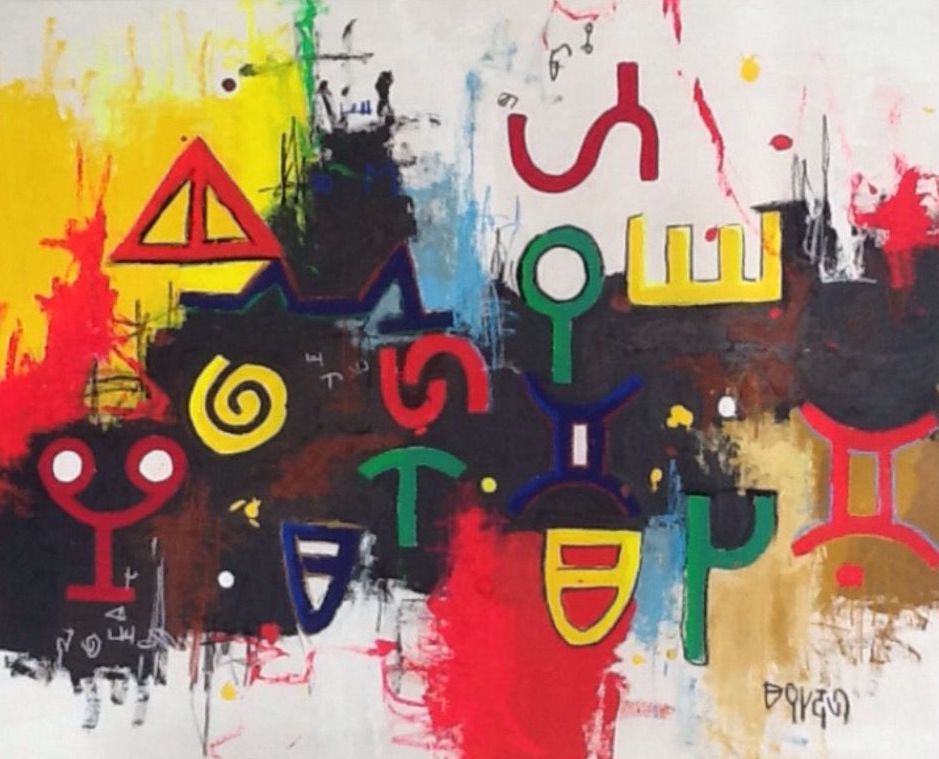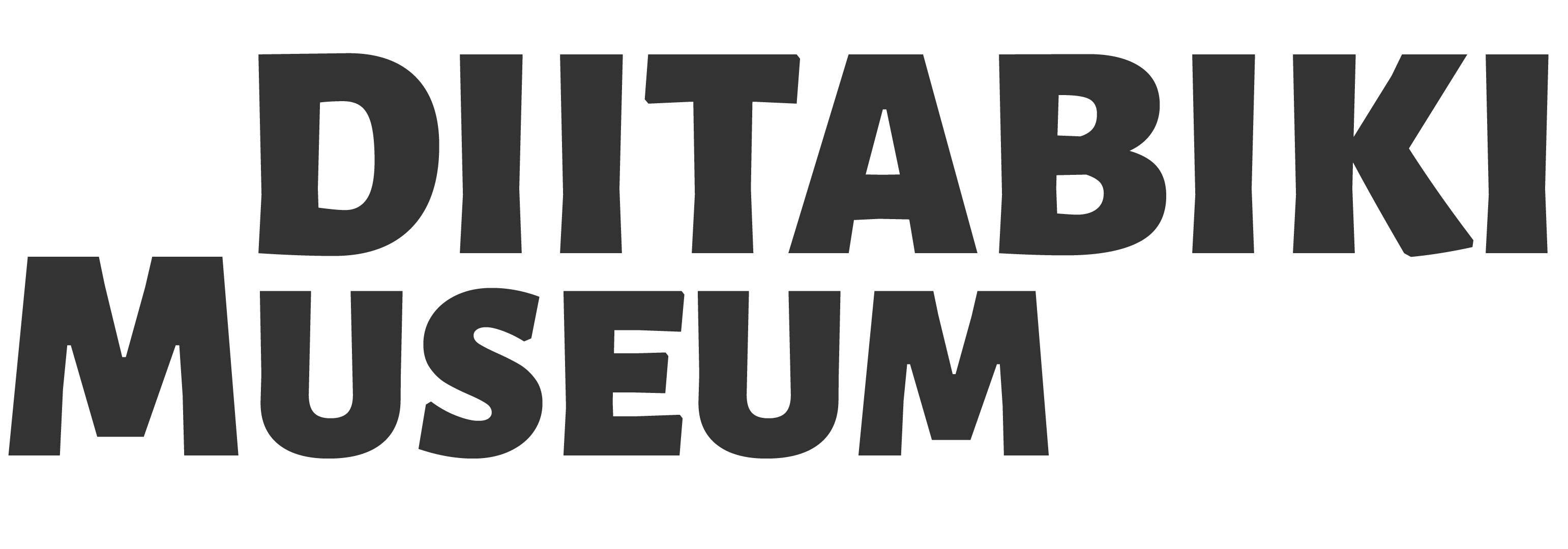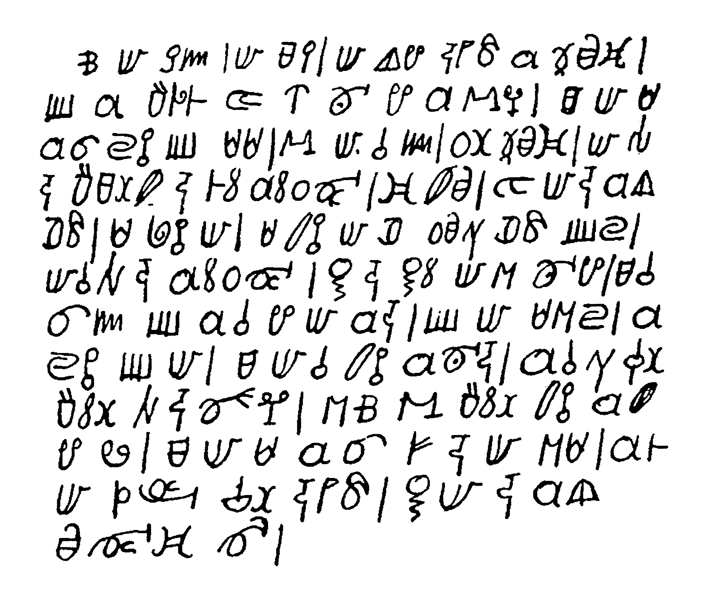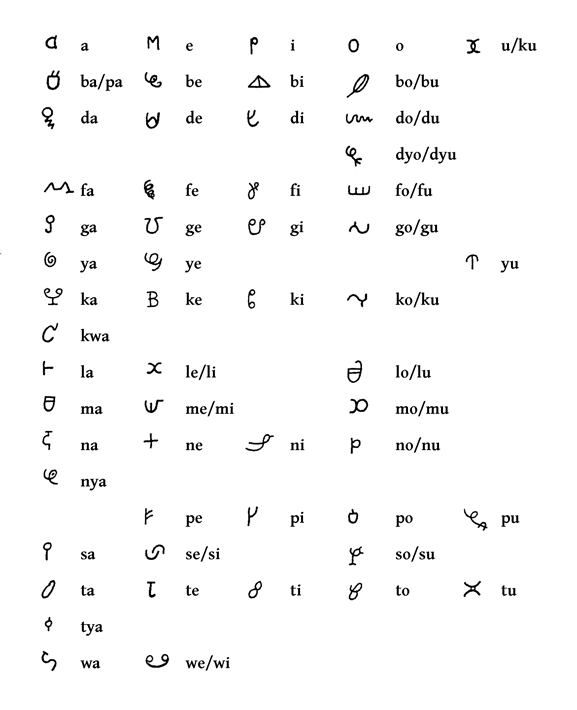Afaka
Picture: Afaka’s first text in the script he designed himself, in early 1917
The Aukan people speak their own language, Ndyuka or Okanisi, in English: Aukanese. The vocabulary is largely English, but there are also many influences from African languages and Portuguese. For a long time Aukanese was only a spoken language. But around the year 1908, the Ndyuka Afaka Atumisi, born in the village of Benanu on the Tapanahoni, dreamed of the spirit of a white man. The latter instructed him to design a script for his people, who had not learned to read and write. Afaka developed 56 syllable marks, each for a separate speech sound. At first he kept the invention to himself. But when he saw Halley’s comet in 1910, it was a sign to him that he should make his writing known among his people. A few years later, he had trained some 30 of his people to be bukuman (literally translated: book man).
Afaka suffered from a serious illness, which slowly wiped out his palate. In 1917 he was in the Roman Catholic hospital in Paramaribo for a long time. Father Morssink, who visited him regularly, was allowed to copy Afaka’s buku. They agreed that Afaka would visit granman Amaktie in Diitabiki after discharge from the hospital to gain support for the spread of writing. Unfortunately, Afaka died on the way, on July 8, 1918. Father Morssink then went to see the granman himself, but he firmly rejected the request. It has never become clear exactly what the reason for this was. Without permission from the local authority, the scripture was unable to develop further among the Aukan people. Today, there are almost no people left who have mastered it.
The Aukan artist Marcel Pinas breathes new life into the Afaka in his work. He sees the script as an important part of Aukan culture. Kibri a kulturu (‘preserve our culture’) is his motivation.

Marcel Pinas, Afaka Buku 6, acrylic/oil collage on canvas, 2016


